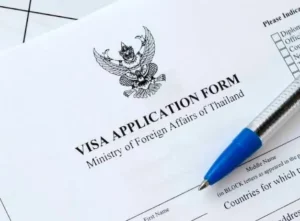In Thailand, anyone who wilfully or negligently injures another person’s life, body, health, liberty, property, or rights commits a tort. These are called wrongful acts or injuries and they are bound to compensate the victim for their losses.
Achieving compensation for an injury requires a thorough grasp of the Thai legal framework, meticulous documenting, and prompt and experienced legal representation.
The Statute of Limitations
A person who suffers injuries or illness in Thailand due to the negligence or wrongful acts of others is entitled to compensation. Compensation for personal injury claims can include medical costs, loss of earnings, and other tangible losses. Victims can also receive emotional distress and punitive damages. It is important to consult a personal injury lawyer as soon as possible to ensure that the statute of limitations does not expire.
In general, a civil lawsuit must be filed within one year after the incident occurred or the claimant became aware of the wrongdoing (this is known as the “prescription period”). It is also necessary to physically appear in court for all hearings. A reputable Thailand injury lawyer can help you ascertain whether you have a valid claim and define what your potential damages may be.
All individuals and entities in Thailand are expected to exercise a reasonable duty of care. For example, drivers must operate vehicles responsibly, employers must provide safe work environments, and property owners must maintain safe premises. A breach of duty is a major element of personal injury claims. Victims must be able to demonstrate that the defendant failed to uphold their duty of care, which resulted in their injury or illness.
In addition to compensating the victim for their losses, the responsible party must reimburse any incurred expenses and cover loss of income, both present and future. The law also imposes an obligation on tortfeasors to pay funeral expenses and support legal beneficiaries. In some cases, the parties may reach a settlement without going to court.
Foreigners Can File Claims
Even if the victim does not reside in Thailand, he or she can still pursue a personal injury claim through a Thai law firm. However, he or she must sign a power of attorney for the lawyer to file a case on his or her behalf, and it is usually necessary to appear in court at least once to testify. Moreover, if the final verdict is not satisfactory, it is possible to appeal.
Generally, the amount of compensation awarded to a victim will depend on the severity of the injuries and the extent to which the injury has affected his or her life. It will also depend on how the accident or wrongful act has impacted the injured person’s finances, including any out-of-pocket expenses and lost income. It will not, however, compensate for intangible damages such as pain and suffering.
In Thailand, it is crucial that victims act promptly in order to preserve any evidence. Moreover, the statute of limitations stipulates that claims must be filed within one year after the incident occurred or the victim became aware of the wrongdoing. Failure to do so will result in losing the right to compensation. In addition, a reputable injury lawyer can help victims define the scope of their losses and whether or not they have a valid claim.
It Is Important to Seek Legal Counsel
It is crucial to seek legal counsel when filing personal injury claims in Thailand. The legal landscape is complex, and a reputable lawyer can guide victims through the process. They can handle a range of tasks, including collecting documents and negotiating with insurance companies. They can also help victims document their injuries and assess the severity of their losses.
Laws in Thailand are primarily based on the Civil and Commercial Code (CCC). The CCC stipulates that anyone who willfully or negligently unlawfully causes injury to another person is obligated to make compensation. Compensation is intended to place the victim back into the position they were in before the incident and can include both tangible and intangible damages. The severity of the injury will determine how much is awarded.
Intangible damages can be difficult to quantify, and judges and insurers may have different opinions on what is fair compensation. A reputable injury lawyer can assist with this process and ensure that all expenses are documented.
When injured in Thailand, it is important to prioritize medical treatment and seek legal counsel immediately. Prompt action can prevent the loss of crucial evidence and reduce the risk of a wrongful verdict. Additionally, seeking legal assistance will allow victims to understand the laws of Thailand, gather evidence, and negotiate with insurance companies. Moreover, a lawyer who specializes in personal injury can help a victim navigate the legal system and overcome obstacles such as language barriers and jurisdiction issues.
It Is Possible to Appeal
Pursuing a personal injury claim in Thailand is challenging, especially for foreigners. However, with a proficient attorney and a strong understanding of Thai law, the process can be managed effectively.
Litigation is the formal legal process by which both parties present their cases to a judge or jury in order to receive a binding judgment based on Thai law. The plaintiff is the party who initiates a lawsuit, asserting that they have been wronged and that the defendant has a duty to compensate them.
Under tort law, a person who wilfully or negligently unlawfully injures another’s body, life, health, liberty, property, or rights is bound to compensate the victim for the damage caused. This compensation generally seeks to place the victim in the same position they would have been had the injury not occurred, and can include expenses for medical treatment and lost income both past and future.
Compensation can also include non-economic damages such as pain and suffering, disfigurement, emotional shock, and loss of enjoyment of life. In some instances, punitive damages may be awarded to punish the defendant for particularly egregious conduct or as a deterrent against similar behavior in the future. However, these damages are rarely awarded.
Related posts:










